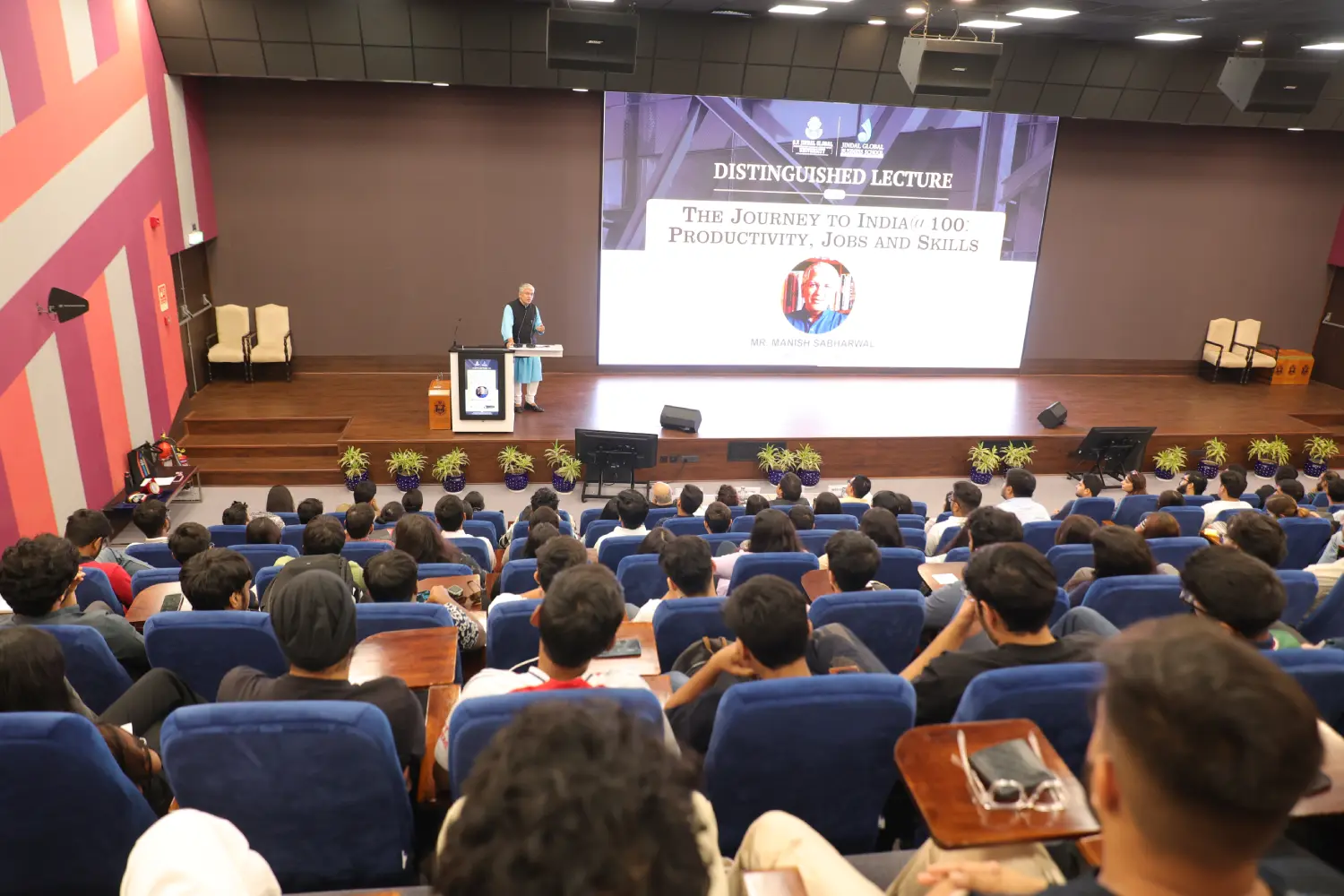|
Table Of Contents |
|
| 1 | Introduction |
| 2 | What Is An MBA Course For? |
| 3 | Eligibility Criteria For MBA Programme Admission |
| 4 | Coursework For The Full-Time MBA Programme |
| 5 | What Skills Do You Learn During The MBA Programme? Hard & Soft Skills. |
| 6 | Why Soft Skills Matter More Than Your GPA in Management |
| 7 | Relevance Of An MBA Degree In 2025 |
| 8 | Source Links |
Introduction
Globalisation has opened a much-needed avenue for business enterprises to widen their scope and market possibilities. This lucrative opportunity has been economically and strategically fruitful; however, it has also created the need for managing reputation and establishing a niche in a complex global market. With the need to manage and administer business operations smoothly, academic programmes and courses like business studies, business administration, etc., were offered by prestigious universities across the world. The top MBA colleges in Delhi NCR follow a similar purpose.
What Is An MBA Course For?
The study of business may begin at home, and in social matters, the formal education starts with the Commerce stream opted in the board examination. Commerce encompasses a vast area, and students interested just in the business part may seek to pursue Business Administration degrees. The Master’s of Business Administration is one such advanced degree programme offering incredible knowledge, enhancing business skills, and raising individual potential to acquire a job in the same line of interest.
This degree course particularly focuses on two primary aspects of business undertakings: leadership and management. The MBA programme focuses on several subjects besides business, such as finance, marketing, planning and distribution and much more.
Eligibility Criteria For MBA Programme Admission
Aspirants must look into the eligibility criteria for the top MBA colleges in Delhi NCR if they want to apply for admission. BBA graduates are usually the eligible ones to apply for the MBA course, but that is not always the only thing to consider for admission purposes. In some institutes, the BBA cut-off is set at 50%.
There are a few entrance exams that you can look into for direct full-time MBA admission. These include CAT, ATMA, CMAT, XAT, MAT, etc. For college admission, they will be required to fill out an application form containing personal and academic details, which will be assessed by the board.
After the application is selected, the candidates will be called for an interview round with the faculty. The faculty will deliver their decisions soon after the interview round. And successful candidates are allowed to proceed further into the admission process.
Coursework For The Full-Time MBA Programme
The top MBA colleges in Delhi NCR offering a full-time course introduce various topics related to business, management, leadership, etc. The degree programme is usually set for 2 years. 4 semesters are held during these 2 years to assess the progress of each student. Here are the common subjects included in an MBA programme.
- Business Statistics
- Micro Economics
- Business Communication
- Organisational Behaviour
- Accounting for Managers
- Marketing Management
- Operations Management
- Introduction to Spreadsheets
- R for Managers
- Supply Chain Management
- People Management
- Financial Management
- Design Thinking and Innovation
- Management Information Systems
- Business Ethics and Corporate Social Responsibility
- Blockchain & AI for Business
- Strategic Management
- Legal Aspects of Business
- International Business
All these subjects and separate electives, and research papers are also included to add more context and increase the academic score at the end of each semester. The academic programme is further enhanced by the guidance of the faculty in learning practical skills needed in the field.
What Skills Do You Learn During The MBA Programme? Hard and Soft Skills.
The skills required in an MBA job can be categorised into two categories: hard and soft skills. Hard skills are direct and often tangible in nature. For example, managing a software or tool, market research, data analysis, etc. On the other hand, soft skills are indirect and intangible, such as communication and leadership, planning, strategising, etc. Here are 5 hard and soft skills necessary in an MBA career.
5 Hard Skills Relevant To An MBA Career
- Financial Management & Analysis
- Business Operation Management
- Marketing Strategy & Research
- Technology & Digital Tool Management
- Project Management & Presentation
5 Soft Skills Relevant To An MBA Career
- Effective Communication
- Analysing & Organising Data
- Market Awareness & Planning
- Problem-Solving & Decision-Making
- Leadership & Strategic Thinking
These are only a few skillsets categorised under hard and soft skills that are supposedly required in an MBA career, and there are certainly more skills one can obtain to strengthen their individual cases and make their portfolio interesting.
Why Soft Skills Matter More Than Your GPA in Management
The top MBA colleges in Delhi NCR have recently been following a newly rising trend of focusing a little extra on developing essential skills, rather than focusing on the GPA. The importance of soft skills cannot be overlooked or denied today, as these skills do not always require a degree or proper training to acquire them.
While hard skills, such as technical management and operations, are crucial, it is still incomplete without the soft skills. Soft skills help enhance the hard skills by allowing complex technical matters to be laid out in simple terms to ordinary people. Soft skills are often believed to be important in establishing professional relationships.
Relevance Of An MBA Degree In 2025
If we are being honest, the value of business schools and business studies has declined drastically due to a loss of relevance. Naturally, universities and institutions were required to step up their game by introducing resolutions and reforms that can revive the lost potential of the MBA degree. This is where soft and hard skills are included in the mix, and the following pointers are further testament to the relevance of an MBA degree in 2025.
- Management skills learned in an MBA programme are always in high demand, and the job market pays well to hire these managers.
- Specialisation in MBA offers a vast array of opportunities for aspirants to apply for jobs in multiple sectors, from marketing to human resources.
- Establish a robust network to boost your personal career and never feel left behind.
- The salary of MBA degree-holders is often the reason many enrol on the programme, and also the means to start their own company.
The top MBA colleges in Delhi NCR have the responsibility to stay relevant with the times and the job market requirements. Skill-based training and industry-led teachings have been the priority for many institutes wanting to offer a comprehensive and holistic development for MBA students.
Source Links
- https://www.coursera.org/articles/what-is-mba-degree
- https://www.linkedin.com/pulse/hard-skills-handbook-essential-tools-mba-triumph-priti-menezes-njzcf
- https://www.educations.com/articles-and-advice/5-skills-business-graduates-need-to-succeed-18001
- https://in.indeed.com/career-advice/career-development/importance-of-soft-skills
- https://www.mastersportal.com/articles/340/10-very-good-reasons-to-do-an-mba-degree.html





